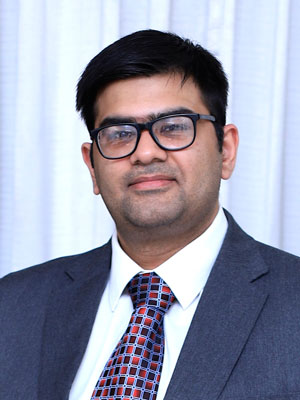Nabhit Kapur Appointed as Permanent Observer to the United Nations for Pan-African Water and Sanitation Agency
New York, April 4, 2025 — The Pan-African Intergovernmental Agency for Water and Sanitation for Africa (WSA) has officially introduced its new Permanent Observer to the United Nations, Mr. Nabhit Kapur. In a formal presentation held at UN Headquarters, Mr. Kapur submitted his letter of appointment to Secretary-General António Guterres, representing a significant step in strengthening African representation in global water governance discussions.

A New Era for Africa’s Voice in Water and Sanitation
As the international community ramps up efforts to meet Sustainable Development Goal 6 — ensuring access to water and sanitation for all — the role of regional agencies like WSA becomes increasingly important. Mr. Kapur’s appointment signals a renewed push to bring African water and sanitation challenges to the center of the global agenda.
The Pan-African Intergovernmental Agency for Water and Sanitation for Africa facilitates continental collaboration around water resource management, infrastructure development, and sanitation initiatives, addressing a growing concern that affects health, economic development, and environmental sustainability across the continent.
A Career Anchored in Development and Mental Health
Mr. Kapur brings to the role a unique blend of experience across mental health advocacy, public policy, and international development. Since 2016, he has served as Founder and Chairman of the Peacfulmind Foundation, an organization committed to mental health awareness through grassroots outreach, public education campaigns, and high-level policy engagement.
The Peacfulmind Foundation has partnered with institutions globally and has contributed to discussions around mental health within the United Nations ecosystem (UN DESA, 2022). Mr. Kapur’s belief in the interconnectedness of mental well-being, environmental conditions, and access to basic services such as water positions him to approach this role from a holistic perspective.
From 2021 to 2023, Mr. Kapur advised the Vice-President of Liberia, focusing on issues related to youth empowerment and sustainable development. More recently, he served as Director of the Sustainable Development Goals (SDG) Program at the National Association of Somalia (2023–2024), overseeing programming on health, education, and environmental reform.
Academic and Global Recognition
Mr. Kapur holds advanced degrees in psychology and psychotherapy, including a Master of Arts from Kalinga University and a Master of Science from the Institute for Behavioural and Management Sciences in Chittoor. His undergraduate studies in applied psychology were completed at Amity University. Over the years, he has earned international accolades, including recognition from the International Forum on Advancements in Healthcare (IFAH, 2021), where he was named among the top 100 global healthcare leaders.
According to a UN press release issued by the Protocol and Liaison Service, Mr. Kapur’s multifaceted career and cross-sectoral experience make him well-positioned to elevate Africa’s needs on the global water and sanitation agenda (UN Press Release, BIO/5581).
A Mandate Rooted in Urgency
Water scarcity continues to pose one of the greatest threats to Africa’s development. UN Water’s 2023 report notes that over 400 million people in sub-Saharan Africa lack basic drinking water access, and nearly 700 million lack access to basic sanitation. These realities demand strategic advocacy, policy innovation, and international cooperation — all areas Mr. Kapur has pledged to prioritize in his new role.
Speaking shortly after his appointment, he emphasized that “access to water and sanitation is not a privilege; it is a right. Our mission at the UN is to ensure Africa is not just heard, but that its challenges are matched with global action.”
As Permanent Observer, Mr. Kapur will work to ensure stronger ties between the UN system and African water and sanitation efforts, while also contributing to policy discussions through UN-Water and ECOSOC engagements.








